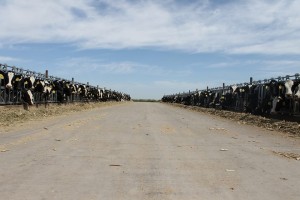**This article is not a substitute for the advice of an attorney.**
Although several of this week’s major Texas court cases were discussed in yesterday’s blog post, here are some additional ag law stories making headlines this final week of August.
1. Even Congressmen are confused over the EPA’s plans to enforce the Spill, Prevention, Containment, and Countermeasure (“SPCC”) rule against farmers. Senators Inhofe and Pryor recently wrote a letter to the EPA “requesting clarification” of the EPA’s interpretation of its own authority to begin retroactive enforcement of the SPCC rule on farmers. [Read letter here.] The rule would require farmers to install double-walled engine oil and diesel storage containers, build berms around their storage facility locations, and submit a certification from a professional engineer that they have complied with these requirements. Congress has been working to create an agricultural exemption to the rule in order to prevent farmers from being forced to bear the high costs of compliance. According to the Senators, the rule’s purpose was to ensure safety of large-scale energy production, rather than to deal with farms. Earlier this year, the Senate passed a bill that would exempt farmers from the SPCC rule. The House included a similar provision in its version of the Farm Bill. To date, no final exemption has been passed by both houses. Initially, the rule was set to apply to farmers in May 2013, but that date was stayed due to concerns that the requirements had not been adequately explained. Currently, the rule is set to go into effect on September 23, 2013. In response, the EPA stated that it has not investigated any farm for compliance with the SPCC.
2. A Reuters article this week discussed concerns over the continued ability to rely on the Ogallala aquifer as a source of groundwater in the future. [Read article here.]
3. Despite defeating a lawsuit brought by an environmental group, a Maryland federal court has denied attorney fees to Perdue Farms and a contract farmer. Waterkeeper Alliance filed suit against a farmer and Perdue Farms, Inc. under the Clean Water Act alleging that the farmer’s poultry operation (a family farm that contracted with Perdue to raise Cornish hens) was responsible for the release of a high quantity of pollutants into the Pocomoke River. After a trial, the court found for the Defendants. Specifically, the court found that although there were high levels of contaminants in the water that were discharged from the farm, the Plaintiff failed to prove that the contamination was from the poultry operation. The only factual evidence showed the pollution to come from the family’s beef operation, but the lawsuit was brought only against the poultry operation. As prevailing parties under the Clean Water Act, Defendants sought nearly $3 million in attorney’s fees. Defendants’ motion for fees pointed out that the Plaintiff had made numerous misrepresentations to the press and the public, failed to negotiate a settlement in good faith, and failure to conduct proper testing to support the case. The court denied this request, finding that the Plaintiff’s claims were not frivolous, unreasonable, or without foundation as required in order to award attorney’s fees under the CWA.
4. Several environmental groups (Center for Food Safety, Environmental Integrity Project, Food & Water Watch, The Humane Society of the United States, and Iowa Citizens for Community Improvement) have filed suit against the EPA for dropping its proposed CAFO reporting rule. The rule–proposed under the Clean Water Act–would have required CAFOs located in certain watersheds to submit information about their operations to the EPA. The EPA withdrew the rule in 2012, stating that it believed it was more appropriate to determine CAFO information from existing sources, including the USDA. The Plaintiffs’ lawsuit contends that the EPA will be unable to fulfill their requirement to regulate CAFO pollution under the Clean Water Act without the rule, and claims that its withdrawal violates the Administrative Procedure Act. [Read complaint here.] This lawsuit is related to litigation filed by the American Farm Bureau Federation and the National Pork Producers Council to prevent these groups from obtaining personal information of producers through the Freedom of Information Act, which was previously discussed on this blog.
5. Litigation has sharply increased in the Eagle Ford shale area of South Texas since the boom began. According to an article in the San Antonio Business Journal, litigation is up over 100% in the last three years. Specifically mentioned are an increased number of royalty disputes and personal injury cases due to traffic accidents with oil-field vehicles. [Read article here.]













